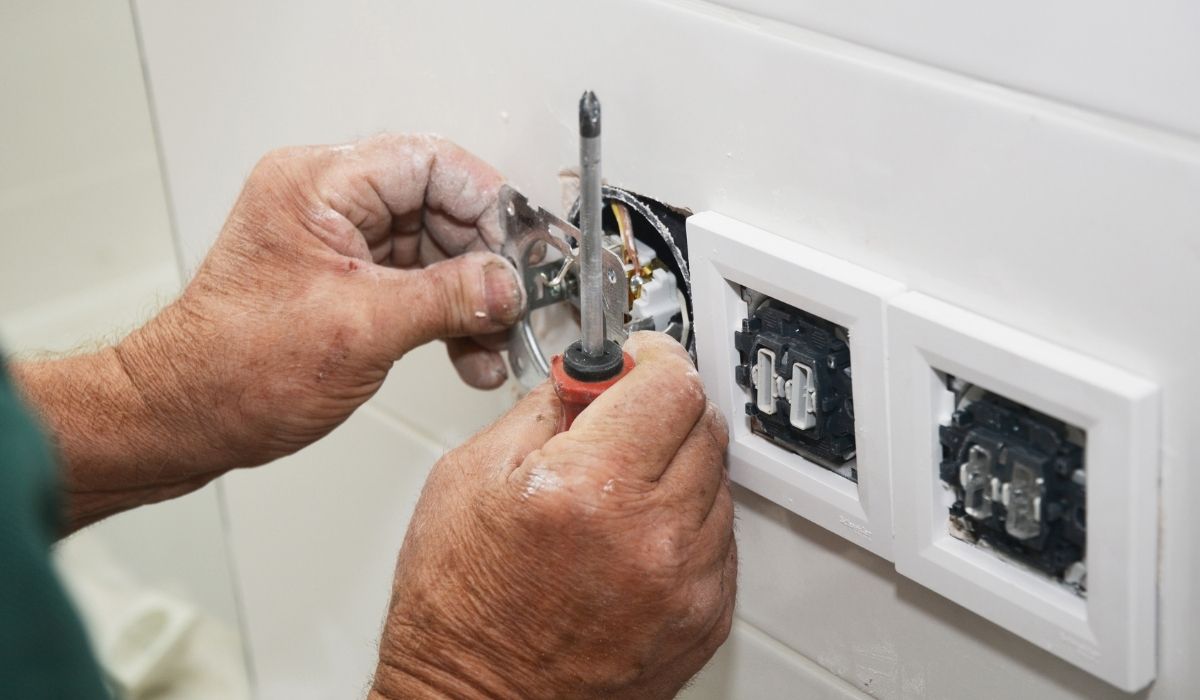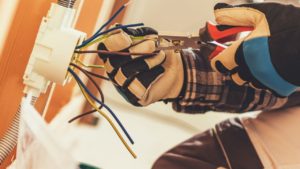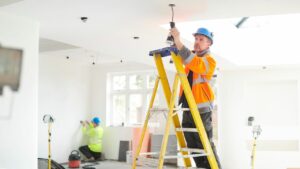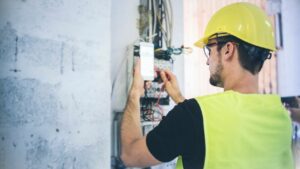Electrical safety is a paramount concern for homeowners. Electrical fires and accidents can cause significant damage to property and pose a threat to the safety of your family. In this blog, we’ll discuss essential tips and best practices to ensure electrical safety at home.
1. Regular Electrical Inspections
Regular electrical inspections by a licensed electrician are crucial to identify and address potential issues before they become hazards. Consider scheduling an inspection:
- When Buying a New Home: Before purchasing a new home, have a professional inspect the electrical system to ensure it meets safety standards.
- For Older Homes: Older homes may have outdated wiring and electrical systems that need attention. Schedule regular inspections to assess their condition.
- After Renovations: If you’ve recently renovated or made changes to your home’s electrical system, have it inspected to ensure compliance with local codes and regulations.
2. GFCI and AFCI Outlets
Ground Fault Circuit Interrupter (GFCI) and Arc Fault Circuit Interrupter (AFCI) outlets are designed to prevent electrical shocks and fires, respectively. Install GFCI outlets in areas where water is present, such as kitchens, bathrooms, and outdoor spaces. AFCI outlets should be used in bedrooms and living areas to detect and prevent electrical faults.
3. Overloaded Circuits
Overloading electrical circuits can lead to overheating and fires. To prevent this:
- Distribute Loads: Avoid plugging too many devices into a single outlet or power strip. Distribute electrical loads across multiple outlets and circuits.
- Use Surge Protectors: Invest in high-quality surge protectors for sensitive electronics. Surge protectors not only protect devices but also help prevent electrical fires caused by power surges.
- Know Your Circuit Breakers: Familiarize yourself with your home’s circuit breaker panel. Label each breaker to identify the corresponding circuit. If a breaker frequently trips, consult an electrician to determine if an upgrade is needed.
4. Extension Cords and Power Strips
While extension cords and power strips are convenient, they should not be used as permanent solutions. Follow these guidelines:
- Temporary Use: Only use extension cords and power strips for temporary needs. Avoid running them under rugs or furniture, as this can damage the cords and create a fire hazard.
- Proper Extension Cord Selection: Use extension cords that are rated for the intended purpose. Avoid overloading them with multiple devices.
- Replace Damaged Cords: Discard damaged extension cords and power strips immediately. Frayed or exposed wires can cause electrical shock and fires.
5. Childproof Outlets
If you have young children at home, consider childproofing your electrical outlets. Outlet covers or safety caps can prevent curious children from inserting objects into outlets.
6. Outdoor Electrical Safety
Outdoor electrical safety is essential, especially when using power tools, lighting, or entertainment systems in your yard or garden:
- Weatherproof Outlets: Install weatherproof covers on outdoor outlets to protect them from rain, snow, and moisture.
- Use Outdoor-Rated Extension Cords: When running power to outdoor devices, use extension cords rated for outdoor use. These cords are designed to withstand exposure to the elements.
- Stay Clear of Overhead Lines: Be aware of overhead power lines when using ladders or equipment near your home. Maintain a safe distance to avoid contact with live electrical lines.
7. DIY Electrical Work
While some electrical tasks can be done by homeowners, such as changing light fixtures or outlets, more complex electrical work should always be left to professionals. DIY electrical work can lead to dangerous mistakes and electrical hazards. If you’re unsure, consult a licensed electrician.
8. Electrical Storm Safety
During electrical storms, take precautions to protect your home and family:
- Unplug Electronics: Unplug sensitive electronics, such as computers and TVs, to prevent damage from power surges caused by lightning.
- Use Surge Protectors: For essential devices that can’t be unplugged, use surge protectors to safeguard them from voltage spikes.
- Stay Indoors: Avoid using corded phones, and stay indoors during electrical storms to reduce the risk of being struck by lightning.
9. Electrical Fire Safety
In the event of an electrical fire, it’s crucial to know how to respond safely:
- Don’t Use Water: Never use water to extinguish an electrical fire, as it can conduct electricity. Use a Class C fire extinguisher instead.
- Cut the Power: If it’s safe to do so, cut off the power to the affected circuit or area by turning off the circuit breaker. Evacuate the area and call 911.
- Have Fire Extinguishers: Keep fire extinguishers in easily accessible locations in your home, especially in the kitchen and garage.
10. Electrical Safety Education
Educate your family members, especially children, about electrical safety. Ensure they understand the dangers of playing with electrical outlets or appliances and know what to do in case of an electrical emergency.
By following these electrical safety tips and best practices, you can create a safer environment for your family and protect your home from electrical hazards. Remember that when in doubt or faced with complex electrical issues, it’s always best to consult a licensed electrician for professional guidance and assistance.





